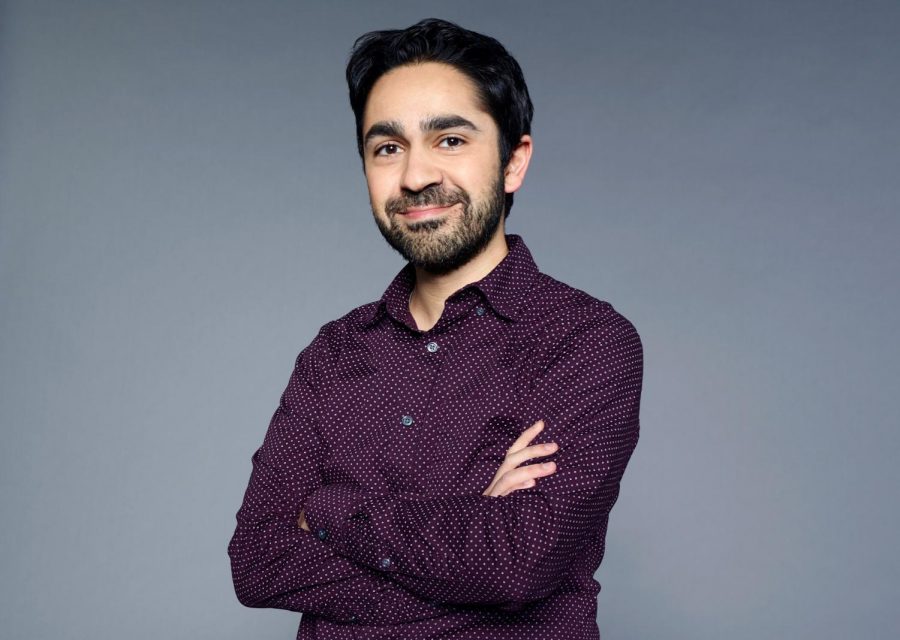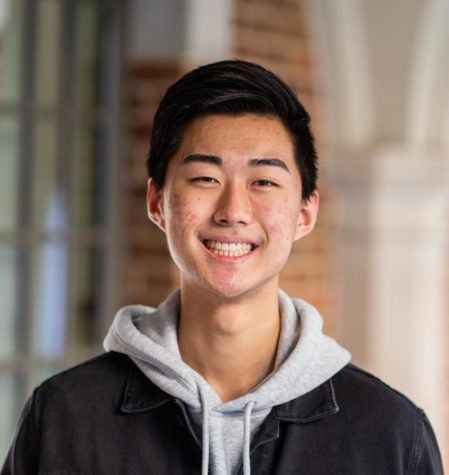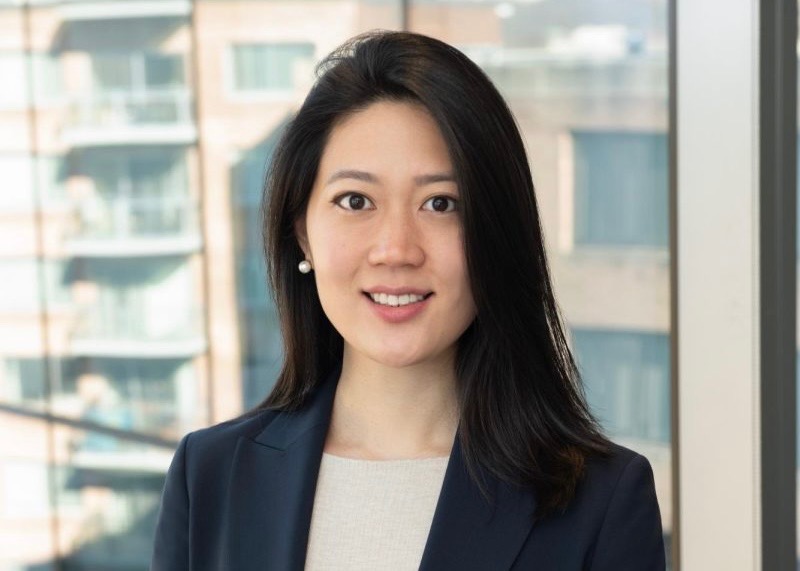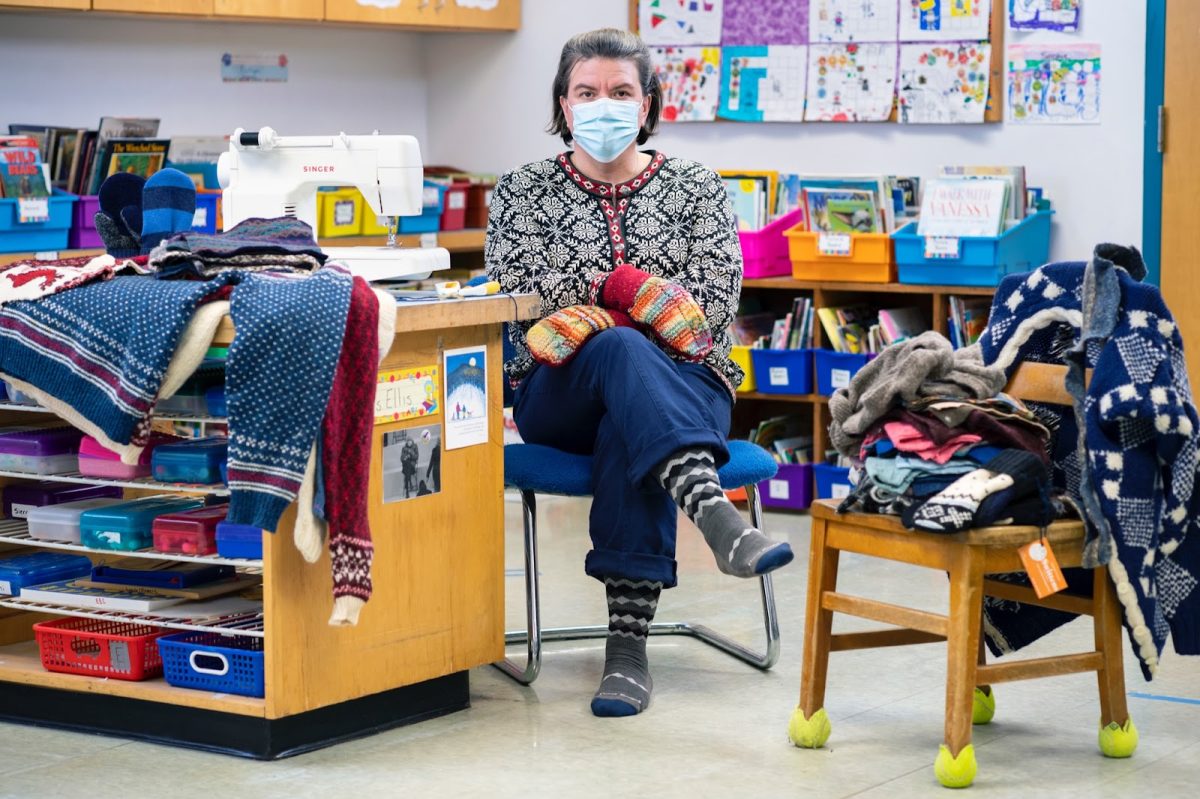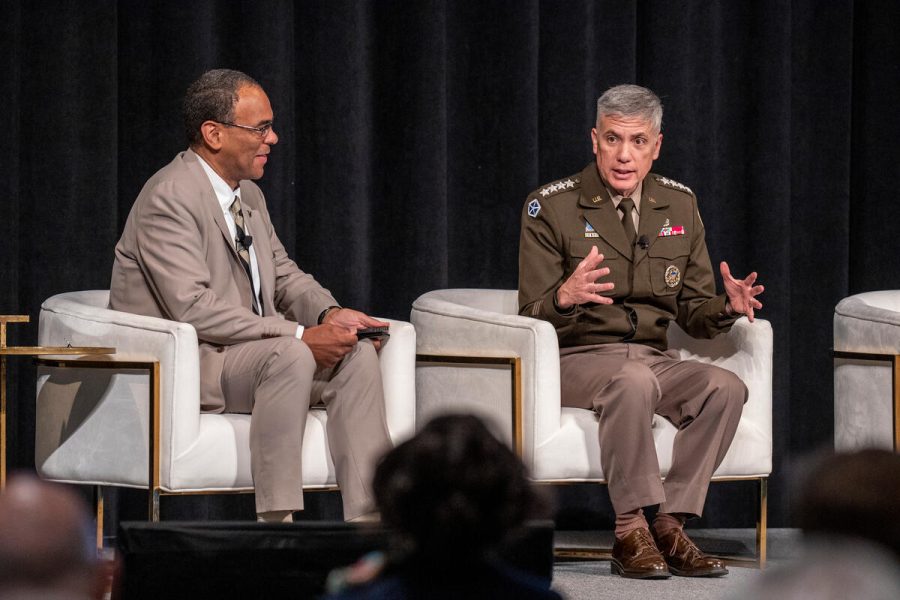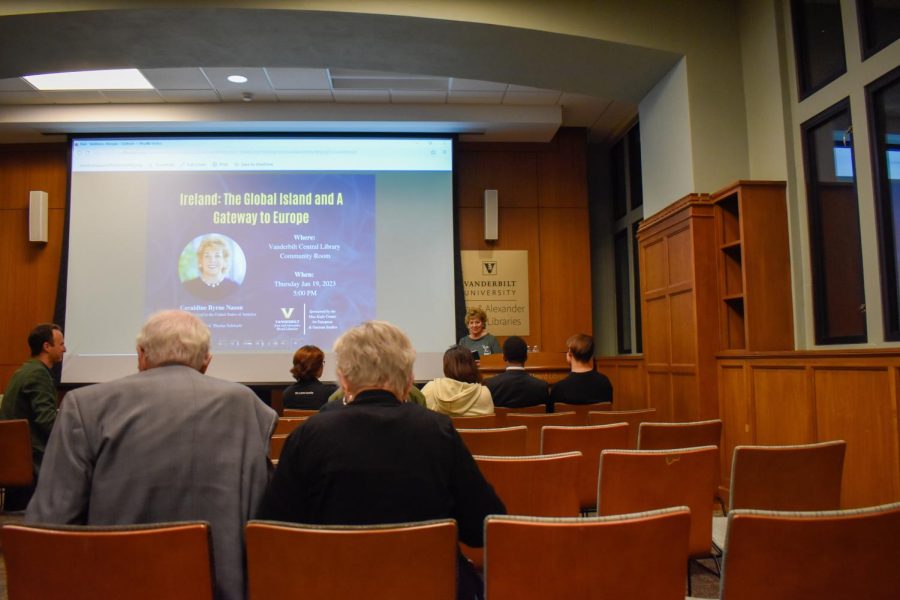Zhubin Parang (BA ‘03), writer and producer on “The Daily Show with Trevor Noah,” spoke with The Hustler in advance of his conversation with students on Wednesday, Sept. 22 at 7 p.m. CDT to provide insight on working in comedy and advice for graduates.
Vanderbilt Hustler: Thank you for being here with us today, Mr. Parang. To start off this Q&A, what do you hope to speak to students about during the virtual conversation tomorrow?
Zhubin Parang: Yeah, I’ll talk a little bit about my own path from Vanderbilt, about how I spent my years at Vandy and a little bit about my career path afterward: what got me to my current job at “The Daily Show with Trevor Noah” and lessons I’ve learned along the way about how to get into television writing and comedy writing. I’ll also share some general advice that’s good for anybody who’s going into a career out of college.
What was your Vanderbilt experience like? How did you transition into comedy writing?
I ended up going to law school from Vanderbilt because I thought I wanted to be a lawyer, but it was at Vanderbilt where I really discovered how much I love comedy. I joined the improv group there—Tongue ‘N Cheek—and I fell in love with the improv comedy festival performance. So, comedy was my passion which I discovered there, but I didn’t listen to myself. I said, ‘well, comedy isn’t really a career, even though you love doing it and it’s what makes you excited to get up in the morning. People are lawyers; they’re not comedians.’
So, I went into law school, and I left law school and practiced law. I took those seven years of grinding away at a job I didn’t like to finally go back and think hard about what it was that I really wanted to do. And the answer was always there. It was what I discovered at Vanderbilt. It was to pursue comedy. So I left the law firm that I was practicing at and began applying for comedy writing jobs.
At the time I spent practicing law in New York, I was also performing comedy as sort of a hobby. And I had built connections within the comedy world through that, so I began using those connections, trying to improve my voice and my comedy-writing skills. It eventually paid off with me getting an opportunity to submit an application to “The Daily Show,” and from my submission, getting the job.
I would have saved a lot of heartache and tuition fees and time if I had just listened to what I told myself about what I was doing at Vanderbilt and just followed my passion.
Was there ever a moment—because it is such a risk—where you regretted it?
No, I was lucky in that I got my dream job, which was “The Daily Show,” within a year or so after I left my law firm. So, I did not. If I had not been that lucky, I think there might have been a lot of opportunity for me to regret losing that steady paycheck and very predictable career that the law provides. But I do wonder sometimes. Anybody who writes and performs comedy professionally has a twinge of feeling useless.
And especially in the world today there have been a lot of moments where I thought maybe if I had stayed with law, I could be helping people with immigration law, or I could have been a better advocate for various political issues that I feel very strongly about. And, to that extent, sometimes I regret not pursuing law. But, I think that I would regret it a lot more if I was not able to find this dream job that I have now.
Can you tell us a little bit about what it’s like working as producer and writer in “The Daily Show?”
Yeah, I mean it’s different now in the COVID era than it was beforehand but these days, we’re all at home. What happens is: I get on a Zoom call with Trevor Noah and some of the senior staff at 9:30 a.m., and we just spend nine straight hours on that Zoom call.
It was a lot more fun in the pre-COVID era when you go into a big writers’ room to start the day and crack jokes. Making jokes across Zoom is a lot harder when the connection cuts out; people don’t hear the punchline, and you have to repeat it. But overall, it’s a lot of the same, and the same structure is there. Ultimately it comes down to what Trevor wants to talk about, and my job is just to execute.
What is the hardest thing about your job?
It is very challenging to compact. We write a day’s worth of news into 45 minutes, and I think that a lot of the stress of my job is within a very short time period we have to put out that amount of content. Being able to write an edit at a 45-minutes-a-day-speed is, I think, the most stressful part about the job. Luckily, you know, I’ve been doing it for almost ten years, so I’ve gotten a little bit numb to the stress of it.
But it’s amazing how sometimes I’ll sit back at the end of the week, and I think about how I don’t even remember what the show was about two days ago. You have to absorb enormous amounts of information, write out jokes on it and then purge it so that the next day’s news can come.
And in the Trump era, especially—because there’s so much news all the time—sometimes the week feels like a year, so you don’t really have a chance to separate issues. And at times I feel like I don’t really have a chance to absorb what news means to me personally. I’m too busy taking it through a comedy process. It’s during vacations when I can really sit down and be like, wow, what just happened was really fucked up.
“The Daily Show” is known for its comedy surrounding very present issues. What challenges are there in producing satire and entertainment in a way that still recognizes the gravity of the real world?
It’s very challenging. There are so many awful things happening in the world right now, and there are so many people who are hurt by the actions of our political and corporate leaders. It’s very cynical, but this era is one where every type of industrial political leader is just pushing their boot down on the throat of the planet.
It’s difficult to make jokes in that environment because the story is not funny, but you know that being a comedian is about finding the funny elements in a story. It’s just a matter of finding that comedic angle, and a lot of what is funny to me about a story comes up very quickly when it stirs an emotional reaction, whether it’s anger, disbelief or joy.
The comedy is in that feeling, that disjuncture between what I would be feeling if I didn’t hear the story and what I’m feeling after hearing it. You take that emotion, and you find the logical reasons behind that emotion, and inside that reason is a comedic angle.
What’s the best piece of advice you have ever received?
The best piece of advice I’ve ever received, by far, was something that Jon Stewart and Trevor Noah taught me: you don’t have to be a dick. You can be at the top of your game professionally and still be a kind person who is understanding and empowers your staff to do the best they can.
There’s so much in this industry, especially in television and film, where so many people at the very top of it are just complete assholes. And there’s so many of them that you almost come into the industry thinking that this is just the natural state of being successful in this field.
Jon Stewart and Trevor Noah taught me that this is absolutely not true. The people who are at the top can be as kind and as professional as anybody. And once you know that, then you know there’s no excuse to be an asshole. So I think the best advice I’ve ever learned is to not be a dick. Don’t be a dick and don’t tolerate people being dicks.
What’s the best piece of advice you can offer to Vanderbilt students?
For people coming out of college or going into a field or profession, there are basically three types of people. If you consider the duties of a job to be a box, there’s one type of person who basically fills their box. They go up to the edges of the box, and they do their job—and that’s it. They do what’s asked of them, and there is also a second group of people who aren’t fully able to fill up the box.
Then, there’s a third group of people who are very active and engaged in what they do. They do all the things that the job asks, and they even begin to push at the edges of the box. They start learning about how they can do things before they’re even asked to do it. They learn not just how to do their job as asked, but what the purpose of their job is to the overall functioning of the team—and I think that it’s a very critical thing if you’re the kind of person who is just so undeniably good at what they’re doing.
Those are the people who are indispensable to a company. Find that thing you love doing, and be that kind of person.

